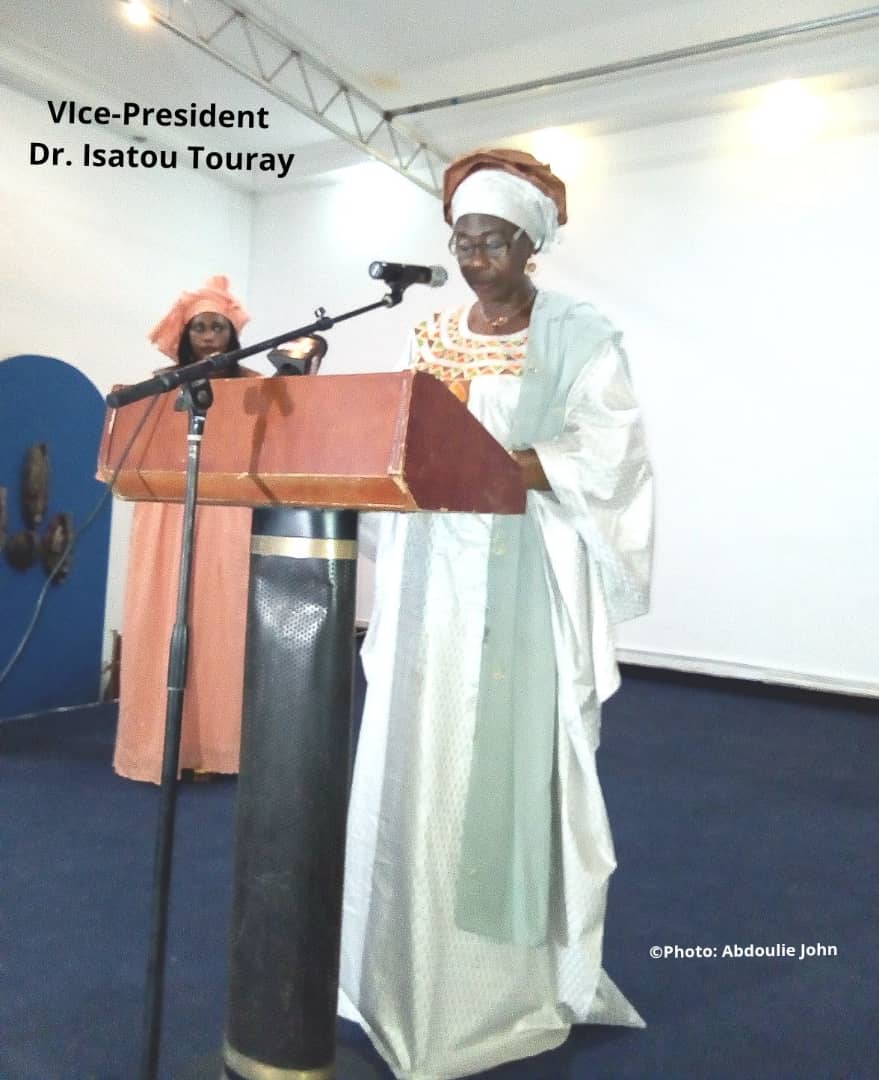‘There is need for the youth to use peaceful methods when engaging the government,’ said Dr Isatou Touray, the Vice-President of the Gambia, during the third edition of the African Youth Forum, known as the Forum Banjul + 3 Forum, held in Banjul, Gambia’s capital, late October.
The event was organised by the United Nations Educational, Scientific and Cultural Organisation (UNESCO) Multisectoral’s Regional Office for West-Africa Sahel, Office of the High Commissioner for Human Rights (OHCHR), Trust-Africa, CODESRIA, ARTICLE 19 and the the African Commission on Human and Peoples’ Rights.
Other organizers were; the NGO women Africa solidarity through its Pan-African Centre for Gender, Peace and Development (FASPAC), the Gambian National Commission for UNESCO (NATCOM- Gambie) are co-organizing with the Pan-African Youth Organizations (PAYNCOP – AYC – AAPI).
Dr Touray said using peaceful methods would be more productive for the youth to avoid non-conflict methods when they want the government to address their needs, as quoted in the Voice, a Gambian publication.
The Vice President has been engaging with the current global phenomenon, where the youth from countries like Russia, Serbia and Ukraine and even South America have been protesting against the government’s way of doing things, in terms of the slump in the economy, which have resulted to policies such as unemployment.
Interestingly, the International Monetary Fund (IMF) estimates that by 2024, 27 million new workers, including the youth, will be inducted into workplaces. There are 41 percent of the youth in Africa who are aged below 15 years, according to the Guardian.
Youth protests across the globe also points to inequality created by the widening gap between the poor and the rich, with the 2018 Oxfam report stating that the poorest in Britain, estimated at 10 percent of the population, are paying more taxes than the richest of the 10 percent.
The UNESCO operational strategy for Africa priority (2014-2021) and the operational strategy for youth (2014-2021) provide a broad framework for engaging with the African Union (AU) and the regional economic communities (RECs), particularly in the resolution of youth problems.
The intergenerational issue and youth rights are also part of the cross cutting questions and challenges addressed by Council for the Development of Social Science Research (CODESRIA), throughout its strategic plan (2017- 2021). It informs about the prospects targeted by such organizations as, Trust Africa and the Gambia National Telecommunication Commission (Natcom).
UNESCO and its partners acknowledge that young women and men hold creativity and potential, to drive change for themselves, their own societies and the world. These three days of reflection and inter-generational dialogue provided an opportunity to collect the points of view and solutions recommended by young women and men leaders from all regions of Africa.
The conversations focused on such important issues as political and civic engagement of young people, the culture of peace, democracy, governance, human rights and guaranteed freedoms. The conversations focused important issues such as political and civic engagement of young people, the culture of peace, democracy, governance, human rights and guaranteed freedoms.
The forum also provided young participants with a platform to discuss equally strategic themes such as the Future of Education, a prospective approach to youth employment as well as climate change, migration, artificial intelligence and the digital revolution. African youth leaders thus discussed with public decision-makers the best way to ensure their necessary involvement in guiding the ongoing social transformations and achieving the objectives of the UN’s 2030 and African Union’s 2063 agendas.

